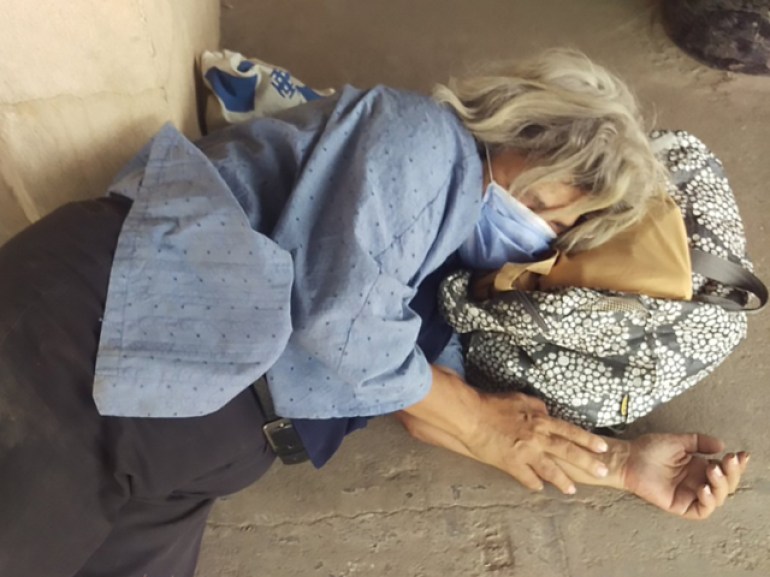In her article for the British newspaper "The Independent", writer Bill True said that human rights groups do not know clearly and accurately the number of activists lying behind bars in Egyptian prisons.
"I want a message," said everything Leila Suef, 64, who has been active in the field of human rights throughout her life, at a time when she was sitting on the edge of the sidewalk located at the infamous Tora prison south of the capital, Cairo.
It was difficult to investigate by the authorities to accept its simple and innocent request related to the news of its imprisoned son Alaa Abdel Fattah (38 years old, a software engineer and one of the prominent faces of the January 2011 revolution).
Since March, the authorities have prevented visits to prisons since the outbreak of the newly created Corona virus, which has caused concern to many families, especially that the Geneva-based Community for Justice has reported cases of Covid-19 in about 30 detention centers In ten governorates, including Tora Prison.
The writer indicated that Suef was sleeping regularly in the streets outside the prison walls, waiting for the promised letter to know if her son was fine. Her two daughter, human rights defenders, joined her. They were ridiculed and mocked by the guards who stood up and watched a group of women armed with sticks hit them hard and stole their belongings last Monday. When the three women tried to file a complaint, Sana (the youngest girl) was kidnapped by men in a car, to reappear in detention on charges of inciting terrorist crimes.
A targeted family and
thus continues the vicious cycle of violence against this family. Her son has been arrested in previous periods. The last time he was arrested in September, amid very rare anti-government protests. His late father, lawyer, Ahmed Saif Al-Islam, was imprisoned when his wife, Mona, who is active in the human rights field, was born.
Writer Bill True stated that Alaa Abdel-Fattah and his sister Sana were behind bars for two different cases when their father died in 2014. The same is the case of the imprisoned activist - who emerged in the January revolution - when his son Khaled was born in 2011.
Suef was released on bail last March after being briefly detained when organizing protests demanding better protection for prisoners from the Coronavirus. Egyptian journalist Lina Atallah was also arrested when she tried to interview Suef to find out what's going on with her.
Shocking practices
Mysterious and ridiculous arrests and trials continue in Egypt. Many have been arrested, held in pretrial detention, have already been sentenced or have disappeared, and it has become confusing.
According to the Independent article, these issues do not make headlines or receive interaction from the international community, as they have become commonplace horrific practices. This is happening in front of the UK, which is the largest single investor in Egypt, which gives it the ability to demand change.
At present, the Freedom of Thought and Expression Foundation - one of the few groups trying to track down arrests - says it is frankly unaware of the number of activists behind bars. But she knows that about twenty journalists have been detained, including freelance journalist Sulafa Magdi, who was arrested in Cairo along with her husband Hossam al-Sayyad and their friend Mohamed Salah in November 2019 on charges of belonging to a banned group and spreading false news.
The Sulafa family confirms that they have not heard any news about it for four months, and they have no idea of its conditions in light of the spread of the Corona virus.
The Freedom of Thought and Expression Foundation returns by stating that, in addition to the arrests and detention of activists and journalists, another common issue of concern is the increasing number of detainees from the stars of the "Tik Tok" application and social media sites in the country accused of spreading immoral values.
The author concludes her essay by saying that there are still many more victims. But most of these arrests went unnoticed or reported, and this helps to further narrow the remaining small space for freedom of expression or justice. Whether the victims are activists, journalists, or stars of Tik Tok, it is imperative that the international community hold the Egyptian authorities to account.

